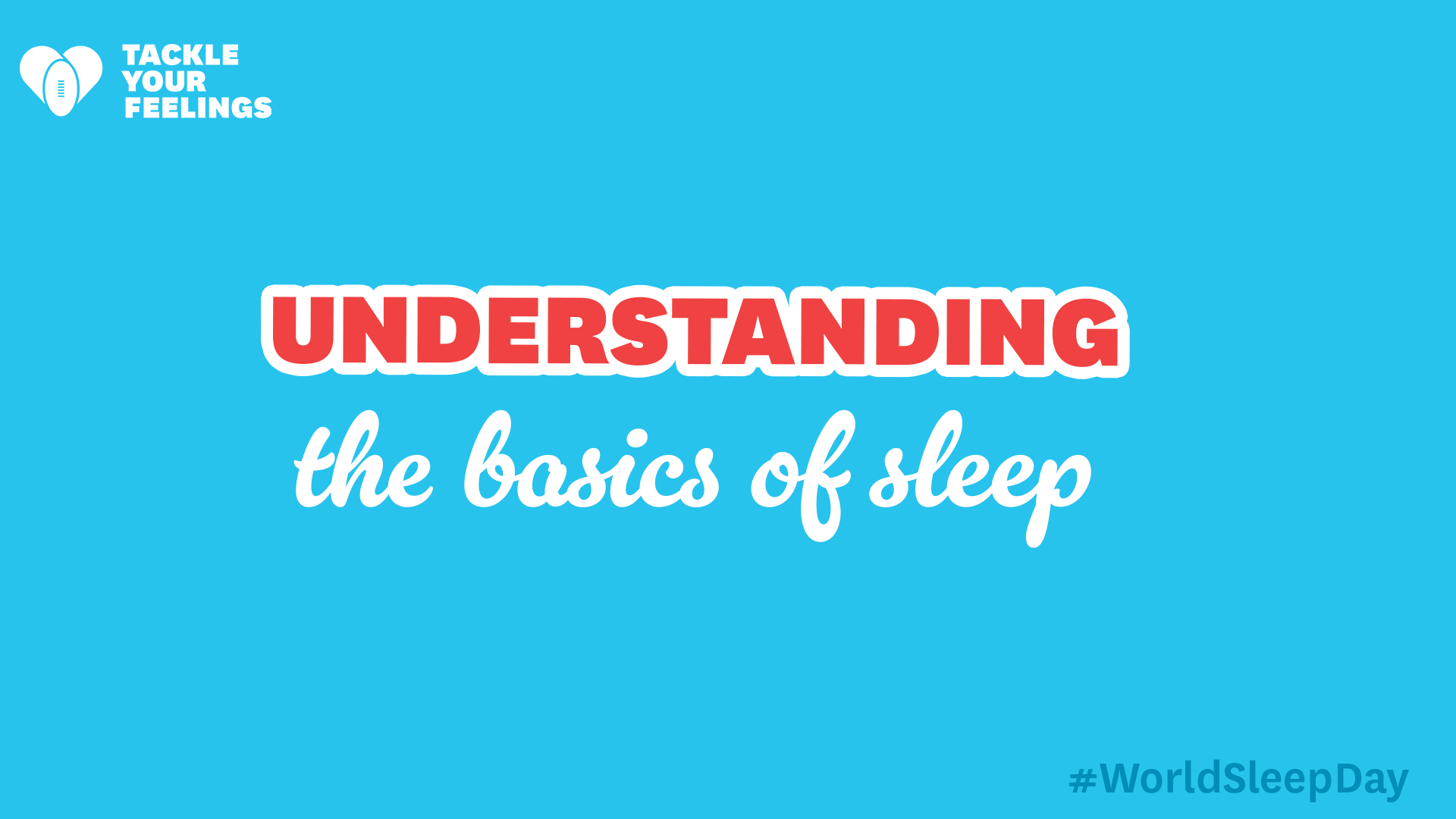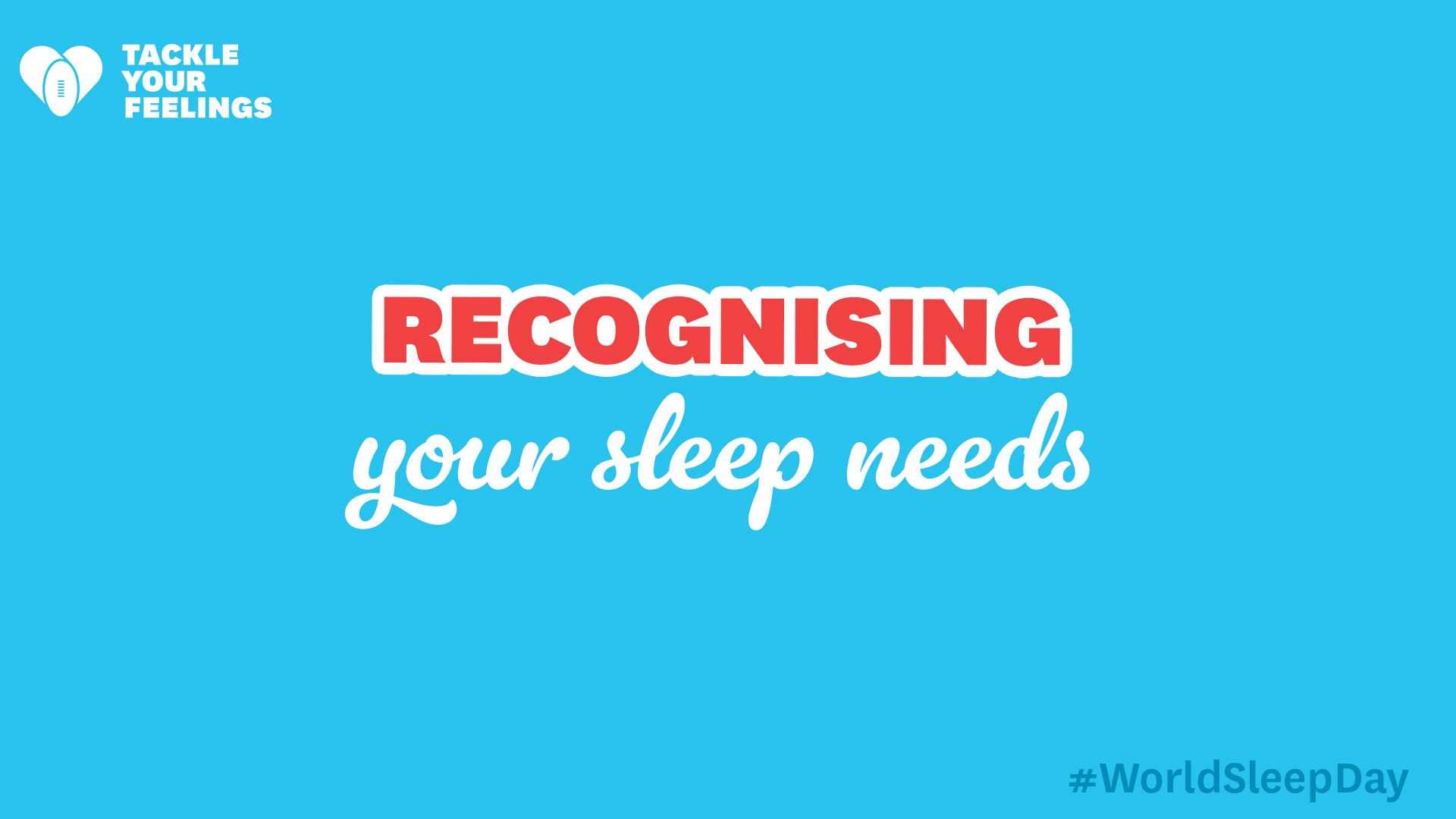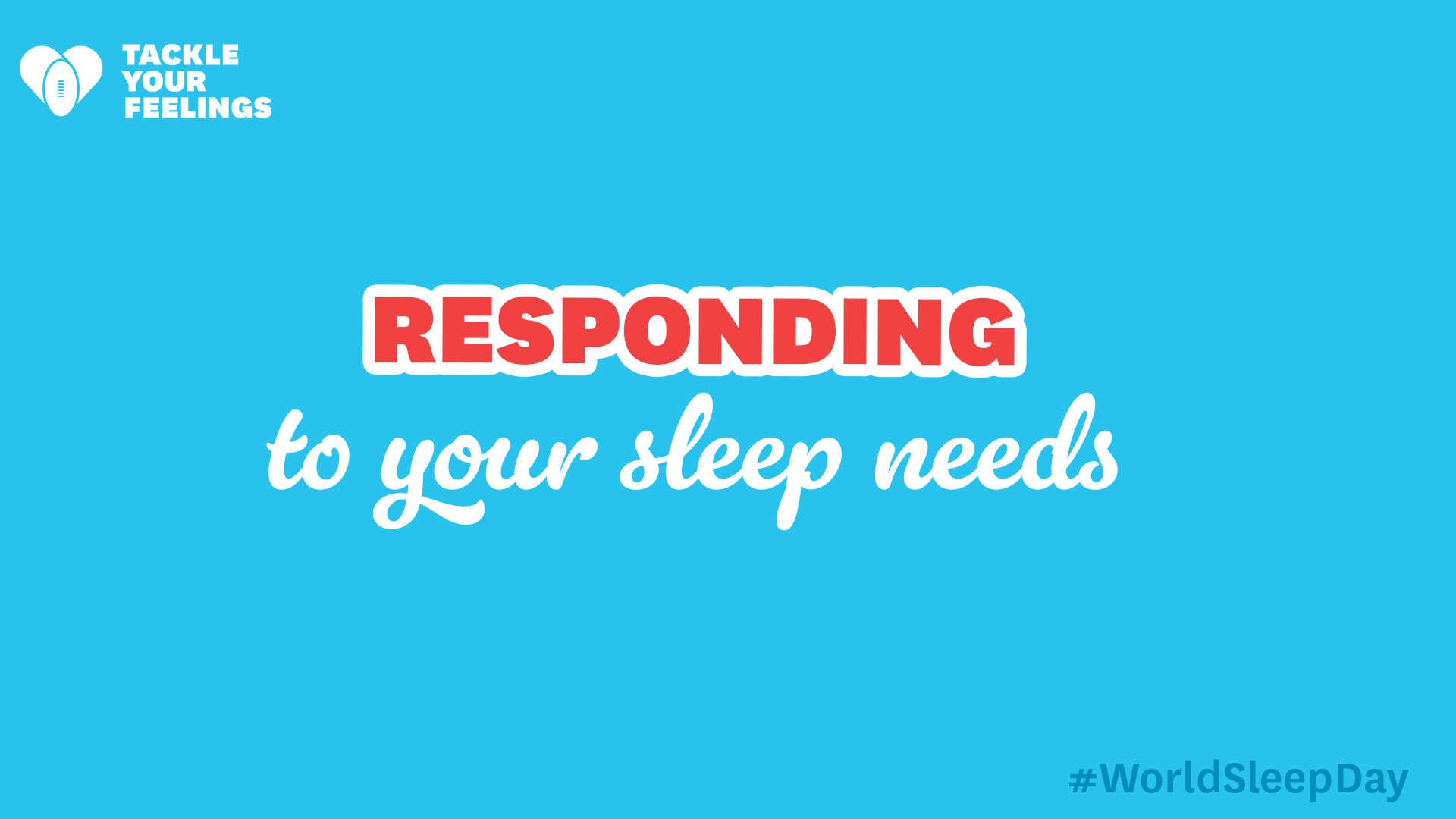This year, World Sleep Day is recognising important issues related to sleep and the role sleep plays in our physical and mental health.
Just like eating well and exercising, sleep is a behavior that is foundational to one’s physical, mental, and social well-being.
However, sleep is not yet commonly considered an essential behavior for good health.
Our Program Psychologist Luke Jankie has looked at the three key components to help us understand the basics of sleep, how to recognise our sleep needs and how we can respond to our body’s unique needs with some helpful tips to promote positive sleep hygiene and health.
Understanding the basics of sleep
To help us understand why sleep is essential for health, we must first understand the basics of sleep.
Sleep is controlled by two main drivers: homeostasis and the circadian rhythm.
Homeostasis, which is the self-regulating process by which we maintain stability meaning our energy levels want to reach equilibrium. Think of this like a thermostat. The second driver is the circadian rhythm. This is the internal process that regulates sleep-wake cycles. The circadian rhythm revolves around 24-hour cycle and is light sensitive.
There are four main stages of sleep that make up a typical sleep cycle.
The first stage is the transition between wakefulness and sleep. This is a light stage of sleep like a wave of relaxation where the body starts to slow down and relax. It is a calm, open and creative state.
The second stage of sleep is the dreamy, twilight stage. In this stage, you become less aware of your surroundings as your breathing and heart rate become more regular, your body temperature drops, and your eye movement drops.
The third stage of the sleep cycle is the restorative, deep sleep period. In this stage, muscles are completely relaxed, blood pressure and breathing rate drops and the deepest sleep occurs.
The fourth and final stage of the sleep cycle is known as rapid-eye movement (REM) sleep. In this stage, the brain is aroused with mental activity, but the body is immobilised. Dreaming occurs during this period, as well as rapid eye movement.
The sleep cycle typically runs for 90-120 minutes in adults. Depending on how much sleep you get per night, you will work through the cycle a number of times.
You might be wondering if behaviour change with sleep is possible – it is! With an intentional plan and consistent implementation, significant improvements in sleep health can occur over 4-6 weeks.

Recognising your sleep needs
What is your sleep need? Though research suggests 7-9 hours is ideal, every person has their own unique amount. There are several questions you can ask yourself to understand what your magic number is to feel rested (or to have enough energy to achieve what you need to during the day):
- What is your sleep difficulty? Do you find it difficult to get to sleep, stay asleep (frequent waking or difficulty falling back asleep), or do you wake up early?
- What is my current flow of thoughts/ behaviours in the lead up to sleep time? Am I on my phone, stimulating my brain, anxious, excited etc.
If you do experience hyper-arousal at night, it’s important to try and identify what some of the causes may be to help understand your sleep behaviours. For example, are you exercising, excitement, nervous or experiencing chronic or acute pain.

Responding to your sleep needs
Once you understand the sleep cycle and your unique sleep needs, you can begin to respond to them.
Support your body’s natural rhythms (homeostasis and circadian)
- Build up a sleep drive throughout the day by doing things that activate and stimulate you (so when you reach the end of the day, you are sufficiently tired to fall asleep). Both physical (exercise, gardening, yoga, general movement) and mental (work, study, reading, socialising)
- Work with the circadian rhythm (Internal process that regulates sleep-wake cycles). This rhythm is very light sensitive, so get outside into the sunlight for 20 minutes when you wake up to reinforce to your body that it is awake time!
Focus on de-arousal
Most days, we reach the end physically fatigued but our mind has not been properly wound down. Below are some tips to help unwind at the end of a long day.
- Create a routine whereby you intentionally unwind 60 minutes prior to bed. This should involve pleasant but unstimulating activities that will help you de-arouse e.g. TV, reading, knitting, sudoku, colouring, listening to music (so long as the content isn’t stimulating you). Note – Be sure to do this in a place that isn’t your bed!
Create sleep associations that condition your brain and body to sleep (sleep hygiene)
- Set a regular wake and sleep time.
- Bed is for sleep and intimacy. Avoid doing other things in bed (eating, studying, working, scrolling through social media) so your body is very clear on what to do when you get into bed – sleep!
- Try to reduce screen time prior to bed. If you’ve become conditioned to use screens to help you sleep, start the reduction process by passively watching a show rather than scrolling, then shift to audio-only (if watching on a phone, turn the screen over and just follow the audio with your eyes closed), then try without screens or audio at all.
- Limit nicotine, caffeine and alcohol.
Adjust your environment
- Set up an environment that is comfortable and conducive to sleep. Ideally your bedroom is a space that you are excited to be in, which lends to a positive association with sleep more generally.
- Create a space that is dark, balanced in temperature, free from noises and distractions.
Mindfulness
- Practicing either formal or informal mindfulness may assist with de-arousal both throughout the day and at night time during your wind down. Mindfulness is a skill – the more you practice the easier it will be. Start slowly with short practices and build progressively.
- Popular formal practices include: Mindfulness of Breath, Body Scan, Progressive Muscle Relaxation, Leaves on a Stream
- Popular Informal Practices: Listening to music, doing chores (folding laundry, washing dishes, etc.), stretching
- While doing these activities, try bringing your attention to your 5 senses and how they connect to the task at hand (What is the feeling of touch? What are the details you can see?, etc.)

Need Support? If you know someone who requires urgent assistance or support, please contact:
Suicide call back service: 1300 659 467
Lifeline: 13 11 14
Kids Helpline: 1800 551 800
Emergency: 000
Support for AFL Players: If you are a current or past AFL Player and would like to know more about our specialised wellbeing and mental health services please contact the AFL Players’ Association at wellbeing@aflplayers.com.au or Tel. 03-8651 4300 (Mon to Fri, 9am – 5pm). Click here to read our disclaimer.


